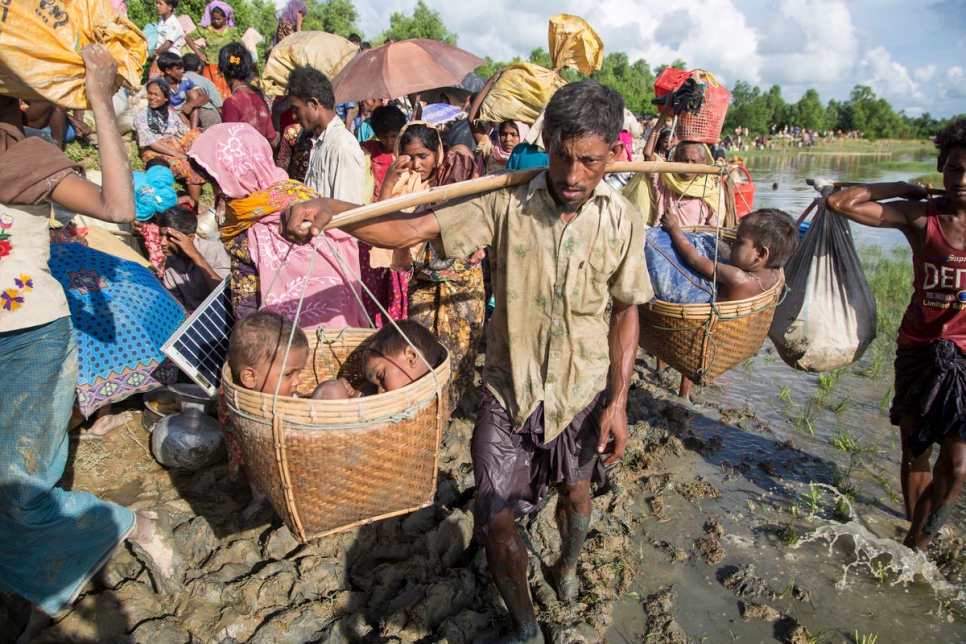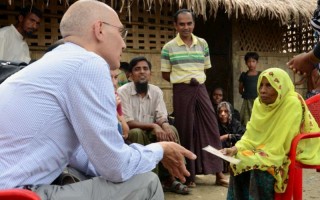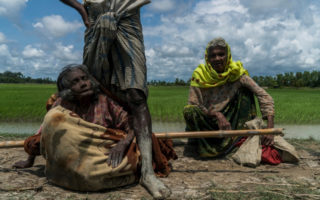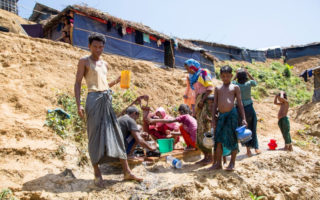
Thousands of new Rohingya refugee arrivals cross the border near Anzuman Para village, Palong Khali, Bangladesh. © UNHCR/Roger Arnold
This is a summary of what was said by UNHCR spokesperson Adrian Edwards – to whom quoted text may be attributed – at today’s press briefing at the Palais des Nations in Geneva.
UNHCR is working with the Bangladesh authorities on a transit centre to prepare for a potential refugee influx in the coming days. This is in view of yesterday’s sudden increase in in people arriving from Myanmar.
Bangladesh border guards say that more than 11,000 Rohingya refugees crossed by land on Monday into south-eastern Bangladesh through several points.
UNHCR sources say that many of the new refugees came from the Buthidaung area in Myanmar’s northern Rakhine state. Buthidaung town is some 25 kilometres east of Maungdaw. Some said they fled torching and killings back home; one boy was seen with a big gash across his neck. Others said they left in fear ahead of anticipated violence.
To reach Bangladesh, they walked for up to 14 days. Many were carrying children and baskets containing whatever they could pack at short notice. They waded through marshland before swimming across the Naf river that divides the two countries. Many women and children could not swim and had to ride piggyback on volunteer swimmers. Some used inflated plastic bags and UNHCR tarpaulins as makeshift flotation devices.
The new arrivals have now been moved away from the border areas into established camps and settlements in the Kutupalong and Balukhali area. UNHCR has trucked in plastic sheets and jerry cans for water. We are also coordinating with the government and partners to provide urgent services – food, water and healthcare – to these new refugees.
To prepare for possible further new arrivals, UNHCR’s government counterpart, the Refugee Relief and Repatriation Commission (RRRC), has agreed to set up small first aid stations at entry points to provide water and attention for major medical emergencies among the fresh arrivals.
In addition, RRRC has allocated land to set up a transit centre in the Kutupalong extension site. It will lead preparedness activities with UNHCR in coordination with partners including WFP, UNICEF, IOM, WHO, ICRC and ACF. Basic assistance will also be provided at the entry points.
Donate to help Rohingya refugees today





